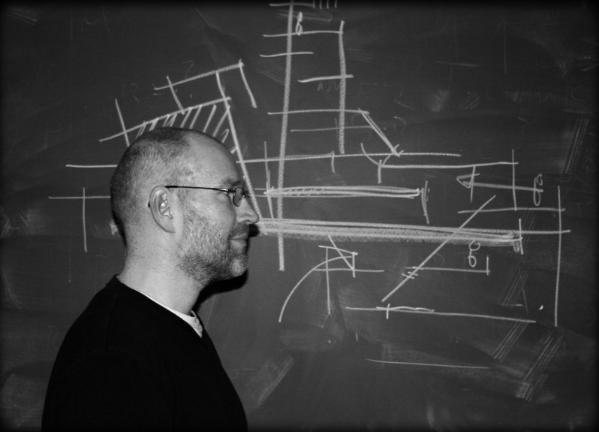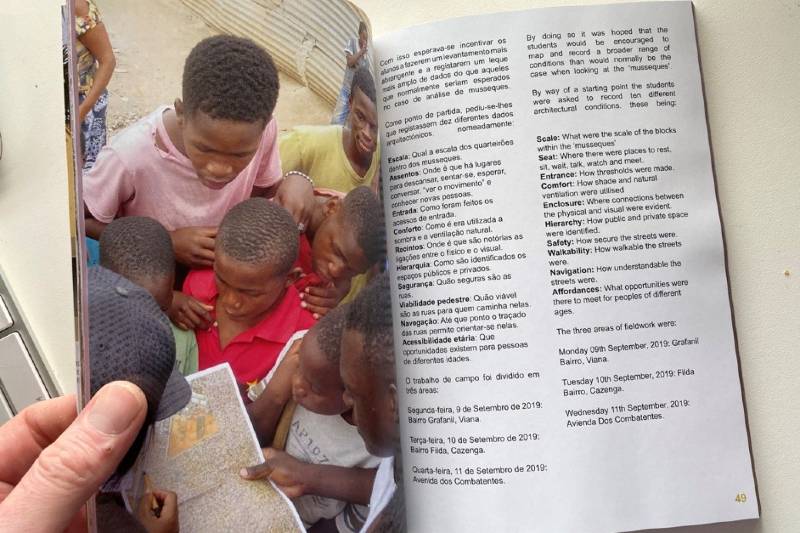An investigation into adding resilience to Luanda’s streetscape through the promotion of inclusive shared space
Observations and findings from the research project were then collated and compiled into a book for use in Angola.
Aim
A book based on the research was designed and targeted at twin audiences;
i. Architecture students in Angola, highlighting the design lessons that could be learnt from studying Luanda’s informal ‘musseques’, and
ii. Local authorities in Luanda, highlighting ways that the city could be improved for all of its citizens, thereby improving resilience, sustainability and inclusivity in Angola’s Built Environment.
Participants
The collaborative research and fieldwork was undertaken with the help and input Kátia Antónia of Agostinho Neto University in Luanda and Dr Neil Galway & Keith McAllister of Queen’s University Belfast.
600 hard back copies of a book describing the fieldwork carried out in Luanda were delivered to Agostinho Neto University. After a book launch at in Luanda, these were then distributed among;
A: Four Angolan Universities
i. Agostinho Neto University,
ii. University Lusiadas of Angola,
iii. University Metroplitana of Angola, and
iv Metodista Univestity
B: Three Local Authorities in Luanda
i. Czenga Administrative District Planning Office
ii. Marsai Administrative District Planning Office
iii. Viana Administrative District Planning Office
and
C: The National Architects’ Association and National Library Service of Angola.
This means that the methodology of engaging in fieldwork in the city, lessons learnt from the project and recommendations for adding inclusivity and resilience to Luanda have now been disseminated to a wide and potentially influential audience of both Universities (Education ) and Local Authorities (Government).
The Research was funded by a Department for the Economy (DfE) - Global Challenge Research Fund (GCRF) Award (2019/20 Round).
Recent papers:
Lições de Luanda. (Lessons from Luanda) launched on 11th November 2020 (Angolan Independence Day).
Uma investigação em adicionar resiliência à paisagem de Luanda através da promoção de espaços inclusivos partilhados.
ISBN 978-1-909731-91-2.
The Research was conducted in partnership with colleagues from Agostinho Neto University’s Department of Architecture and with the help and participation of 21 architecture students from 2 Luandan Schools of Architecture (Agostinho Neto University and Metropolitan University).

LEAD PROJECT INVESTIGATOR Keith McAllister is a Senior Lecturer in Architecture at Queen’s University Belfast. A practising Chartered Architect, he has extensive experience working as a project architect, both in private practice and as a sole-practitioner, especially in the educational sector, with specific emphasis on exemplar designs for mainstream and special needs schools. Keith’s ongoing academic research is focussed broadly on the relationship between Architecture and Fear, especially for those populations without a voice.
Under the Global Challenge of ‘Sustainable Health and Well-being’, the conducted research project sought to undertake a Luanda-based investigative study that would be of benefit to both Angolan Universities and Authorities.
Currently Luanda, the capital city of Angola, is facing many challenges associated with a quickly growing population. This is putting a huge strain on its existing infrastructure and the quality of its built environment. The Angolan authorities are facing the challenge of providing an urban realm that can both sustain predicted growth and provide a comfortable built environment for all. Hence this project sought to investigate ways in which Luanda’s streetscape could be made more inclusive and sustainable by being more resilient to the physical, social and economic challenges it faces in twenty-first century.
- Keith McAllister
School of Natural and Built Environment,
Queen’s University Belfast
k.mcallister@qub.ac.uk

